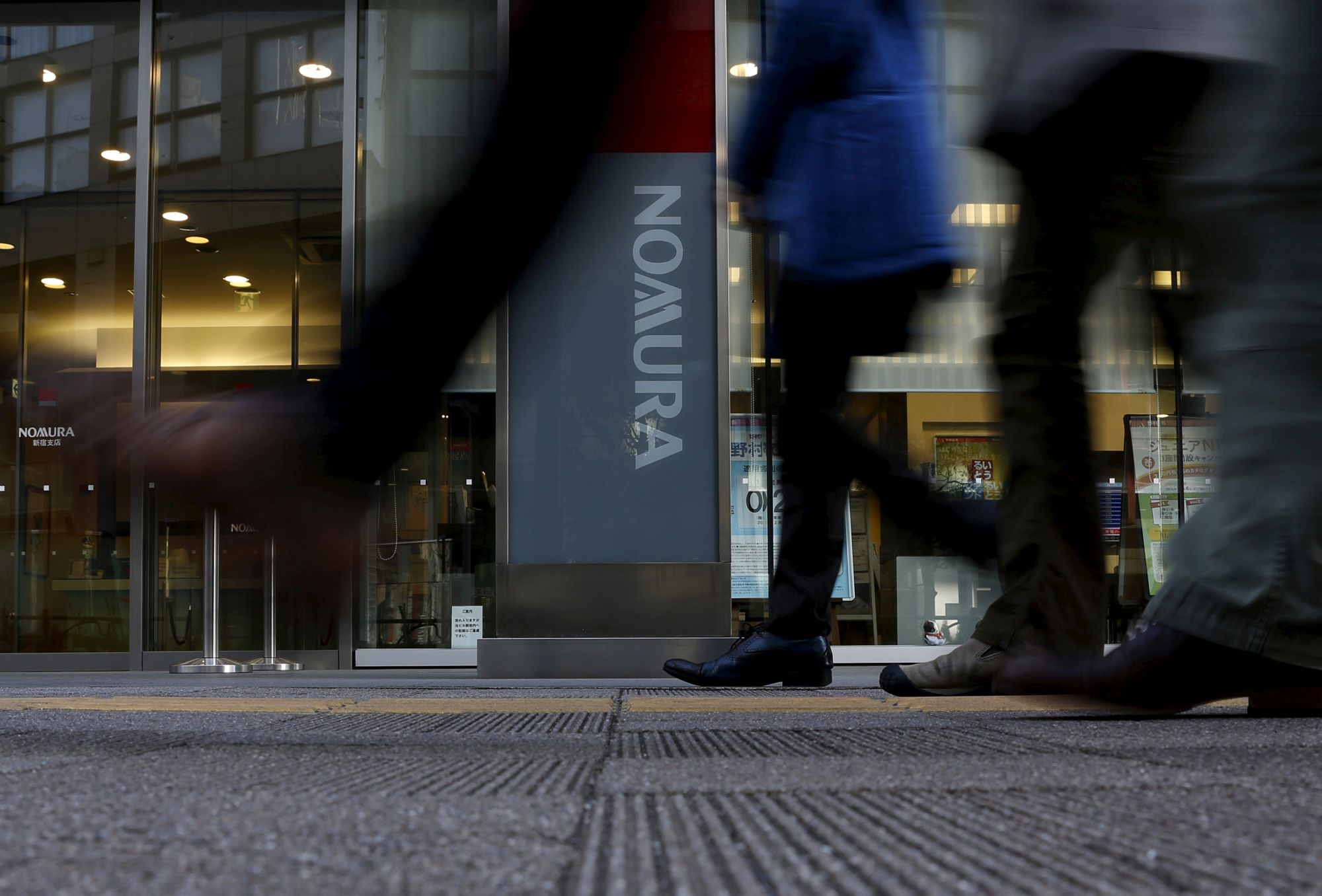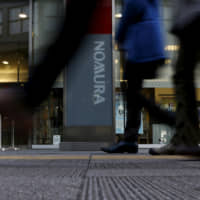Japan Inc. is paying dividends like never before, and that's poised to lure more investors, according to Nomura Holdings Inc.
Dividends for companies traded on the first section of the Tokyo Stock Exchange reached an estimated ¥14.5 trillion ($133 billion) in August, according to data from Nomura. That's more than double the amount in December 2012, when Prime Minister Shinzo Abe came to power, making corporate governance and deploying cash a priority.
"The pile is getting bigger and bigger," said Tadashi Kikugawa, head of quantitative index strategies at Nomura. "So there's good reason for investors to take risk in equity markets."
Japanese equities may be more attractive than U.S. shares when it comes to dividends as American companies tend to pay investors on an irregular basis. In Japan, firms prefer steady payouts, according to Kikugawa.
Even with that, U.S. stocks have outperformed their Japanese counterparts. The S&P 500 Index has more than doubled since the end of December 2012, while the Topix index is up about 90 percent in the period.
Investors who shun equities because they see them as too volatile and sensitive to economic fluctuations have it wrong, Kikugawa said. Thanks to the pace of dividend growth for Topix members, stocks will become increasingly attractive, particularly as global interest rates head toward zero or are stuck in negative territory, he added.
The payouts will only increase as Japan Inc.'s total revenue keeps expanding, while the return on government bonds will shrink, he said in an interview.
"I don't think people are looking at this seriously," he said.



















With your current subscription plan you can comment on stories. However, before writing your first comment, please create a display name in the Profile section of your subscriber account page.